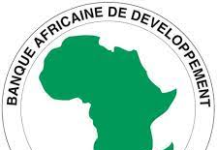The Nigeria Cassava Growers Association has tasked the Federal Government to intensify its effort in cassava farming, noting that country can generate about N8.5trn yearly from the product.
An associate of Lafarge Africa Plc., Chairman of NCGA in Cross River State, Augustine Oqua, who spoke at the opening ceremony of a two-day community business enhancement initiative tagged, “Cassava Cluster Scheme”, organized by the United Cement Company of Nigeria Limited, said cassava had the potential of generating between N5 trillion to N8.5 trillion annually for Nigeria if its production was maximised.
Oqua called for a concrete step towards diversifying the nation’s economy from the monolithic dependence on oil revenue.
He stated that as the largest producer of cassava globally, Nigeria had over 1.25 million cassava farmers that could be redirected to help generate the revenue adding that apart from the cassava flour, ethanol could be extracted from cassava for the production of electricity.
“Cassava is more available than any other crop in Nigeria. It can generate between N5 trillion and N8.5 trillion annually which is far above the budget of the country. Cassava alone can transform Nigeria and even Cross River State which is the largest producer in the country.
We can use it to replace crude oil. “Today, UniCem is spending millions of naira to buy gas to run electricity, but ethanol, could be got from cassava as a bi-product and used to generate electricity. Our major problem is the acquisition of land for the production of cassava and that is why we need government intervention.
” While harping on the need to diversify the nation’s economy, the Head, Public Affairs, Lafarge Africa Plc., Mr. Ayi Ita-Ayi, averred that it had become imperative to look at other areas as means of livelihood. “The essence of this workshop is to ensure that we have alternative means of livelihood. At the moment, we are having issues with the economy because of dwindling oil revenue. Our economy is oil-based and we are thinking that globally and locally there is a threat.
“That is why we have put together this stakeholder’s workshop involving UniCem, host communities in three local government areas of Cross River State, to draw support from government on agriculture intervention schemes,” he said.













